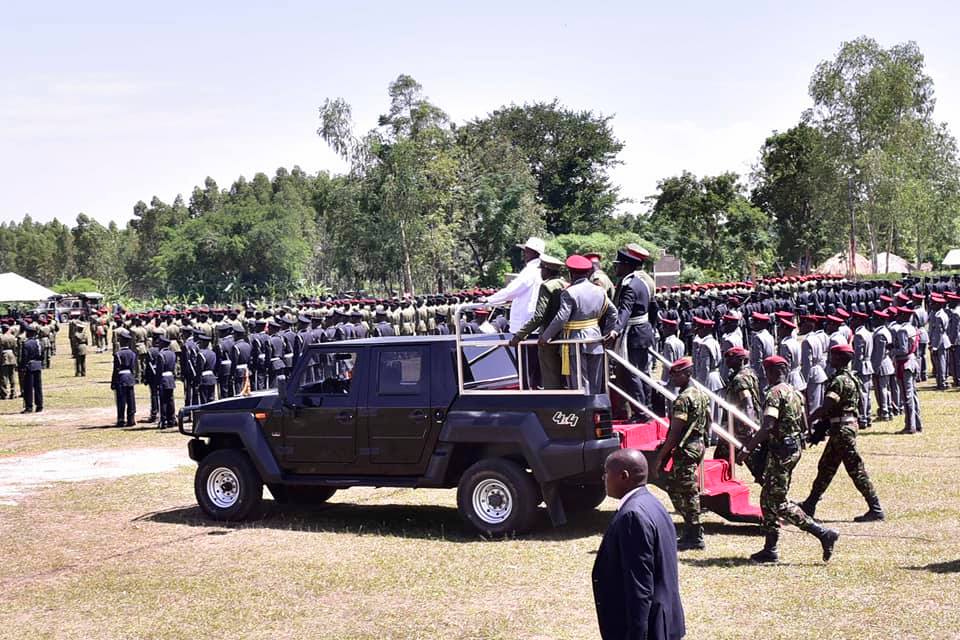Wednesday 6th February 2019 will be exactly 33years since the National Resistance Army took power. The year 1986, was not as usual to Ugandans. For the people of Uganda, had become accustomed to political instabilities and turmoil with one group of people outsmarting the other out of power, and that was defined Uganda even to the outside world.
Uganda had never been stable right from 1962, the Dynamics in the Lancaster Conference, had a fire ignited by Omukama Kabalega’s issue of the taken counties which the colonial government had annexed to Buganda as appreciation for Buganda’s role in supporting the British administration. This was followed by the 1966 attack on the Lubiri, the abrogation of the constitution resulting in a pigeon hole constitution by Milton Obote.
The political boat had not yet stabilized even then, such a Constitution was to last for one year and a republican constitution put in place in 1967.
Idi Amin then overthrew the Milton Obote government on January 25th 1971, this ushered in the bloodiest of an administration that Uganda had ever witnessed, and it was a reign of terror that was characterized by wanton killings, declaration of an economic war that saw the expulsion of the Asians from Uganda. The economy went into shambles, and there was a shortage of basic needs, factories closed down, etc.
In 1976 there was a stampede at the national Airport when a hijacked plane with several Israeli citizens was landed at Entebbe airport.
In 1978 there was an invasion on Tanzania, Ugandan troops occupied Kagera. This opened a Panorama of war worms to consume Uganda with short-lived governments, with coups and counter-coups characterizing the period.
It was not until the takeover of the NRA/NRM that Uganda was ushered to a new dawn of leadership.
From the brief recount of the instability from 1962 to 1986, one cannot undermine the dividend of peace and stability that has been enjoyed for the 33years of the NRM government.
Even when remnants of disorder and instability tried to assume relevance by destabilizing parts of Uganda, the UPDF has tirelessly worked to restore order and stability. Groups like the West Nile Bank Front (WNBF), Uganda Salvation Army/Front, Uganda National Rescue Front/II, National Army for the Liberation of Uganda(NALU), Lord’s Resistance Army (LRA), Allied Democratic Forces (ADF), and now the unending War against terrorist activities in the region highlight the commitment to the stability for the 33 years.
According to the 10th May 2018 BBC Country profile of Uganda, the UPDF under President YK Museveni is credited for restoring stability and economic prosperity to Uganda following years of civil war and repression.
Relatedly, according to the World Bank Political stability Index from 1996 to 2017, Uganda ranks among the stable Countries in the world coming above known stable Countries like Tanzania, Kenya, Ethiopia, Nigeria that are considered standard stories for many.
Today’s major threats to the stability of Uganda are economic factors such as unemployment, corruption and office abuse, etc. of which the NRM government has embarked on addressing.
Issues of unemployment of Youths are being addressed through government programs such as the Youth Livelihood program, Operation Wealth Creation, External Labour Export through Ministry of Gender Labour and Social Development, and a robust attracting of local and foreign investment into Uganda campaign, the setting up of industries, skills development and retooling of graduates, etc.
If the UPDF could subdue the long history of political instability, it is a matter of time for the remaining economic threats to be dealt with.
This, however, shall take a unified concerted effort of all Ugandans.
As Ugandans, let us celebrate the achievements as we move to work on the areas lacking.
Uganda is blossoming with fruits of stability; the thriving media with over 117 private radio stations spread all over the country. This highlights the guarantee for freedom of speech and expression as enshrined in the constitution of 1995; the growing business environment attracting both local and foreign business enterprises.
In fact, Uganda Investment Authority has so far established 10 out of the mandated 22 Industrial and Business Parks, and by September 21st 2018, about 47,000 jobs had been created for Ugandans in these industrial parks with 5,000 formal factories operating according to the investment authority, while 52,000 informal factories running at a small scale production rate across the country;
The ever-expanding education sector with private players growing day by day. There are over 13,359 private schools, in over 127 districts; Uganda boasts of 55 Universities inclusive of the 04 military academies, and other degree awarding institutions.
Although some political actors in contemporary Uganda tend to highlight issues of rights and freedoms as the most pressing of Uganda’s problems, to the contrary addressing economic issues is the priority to the NRM government for now.
Political and other freedoms were well addressed by the 1995 constitution; rather the only issue that Uganda is facing is how to enjoy the freedoms without undoing the dividend of stability for all.
It is indeed my considered opinion that if we can all focus on an economic stability agenda while enjoying the democratic and other freedoms without putting the stability of Uganda at risk, then beyond the 33years of undisputable peace and stability Uganda can thrive and remain of influence beyond even the borders.




